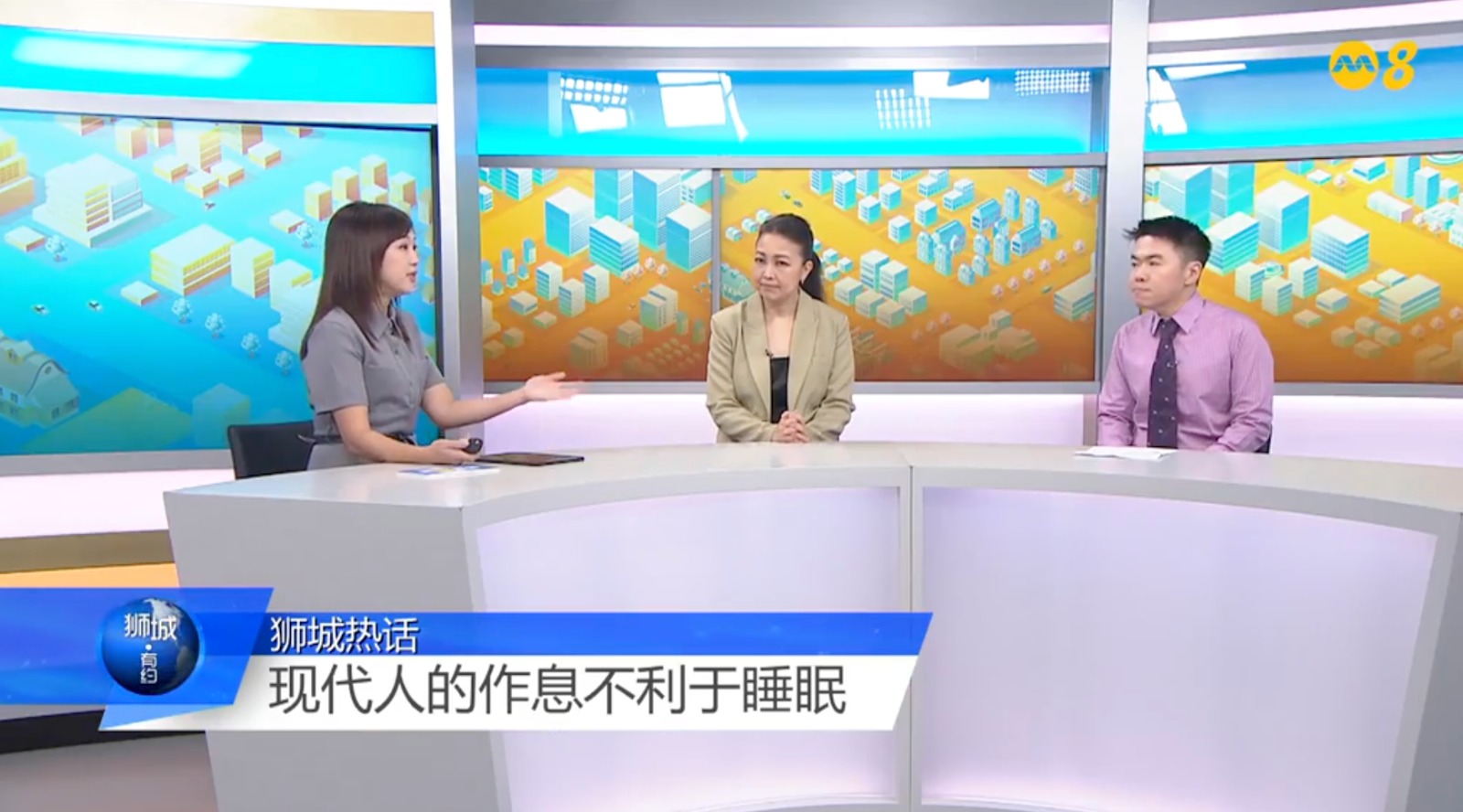Do you often have trouble sleeping at night or even stay up late as revenge, and only catch up on sleep on weekends? Doctors warn that “sleep debt” has interest, and long-term “debt” will lead to an increased risk of diabetes, heart disease and stroke.
If you can’t sleep for several weeks because of the hot weather, does this count as insomnia? Private Space Medical psychiatrist Dr Victor Kwok said that short-term insomnia for a few days is not insomnia. However, if the frequency of insomnia is as high as three days a week for up to three months, affecting your daily life, making it difficult to concentrate, and even irritable, then you have insomnia.
Melatonin is not as magical as you think
Melatonin is a substance secreted by our brain that helps us sleep. As we age, the secretion of melatonin will begin to decrease, which is one of the reasons why older people are more likely to have trouble sleeping. Many people may not go to the doctor even if they suffer from insomnia for a long time, but choose to find ways to relieve it themselves, including supplementing melatonin or magnesium. However, Dr Kwok bluntly stated that there is no medical basis for the claim that supplementing melatonin or magnesium can help you sleep.
“If you are under 55, there is actually no medical basis for you to take melatonin because your brain is still producing melatonin. Magnesium is also a health supplement. These things you buy outside are not medicines, they are all health supplements, so they have not been strictly inspected by the Health Sciences Authority, so you have no way of knowing whether they are of good quality.”
Regarding whether taking sleeping pills would be a better approach, Dr Kwok said that if you really encounter long-term insomnia, you should first adjust your sleeping habits and receive psychological counseling. If there is still no improvement, you may use medication under the evaluation of a doctor. Dr Kwok explained that the old drugs used to treat insomnia have the risk of addiction, but the new drugs do not.
Catching up on sleep after staying up late is helpful but not a solution
Many people are used to staying up late on weekdays to browse their phones and watch TV series, and then make up for it by sleeping in naturally on weekends. Dr Kwok described it this way: “You can think of your brain as a bank. Staying up late on weekdays is like owing a debt, and making up for it by sleeping in on weekends is like paying off the debt.” Therefore, in the short term, it can relieve fatigue, but in the long term, this irregular work and rest schedule will still “collect interest” and may increase the risk of high blood pressure, diabetes, heart disease and stroke.
Dr. Guan Chong, associate professor of marketing at the Singapore University of Social Sciences, pointed out that many people stay up late because their “self-control is exhausted during the day.”
“We spend all our energy on work and responsibilities during the day, so at night, we want to gain some freedom and relaxation for ourselves.” The retaliatory mentality of staying up late makes people delay going to bed even though they know they should rest, forming a vicious cycle of “the later the night, the more awake.”
Why do modern people prefer to stay up late rather than go to bed early? In addition to the rhythm of life and psychological inertia, the content and choice of nighttime activities are also changing, which in turn affects our work and rest habits. In the past, nightclubs and late-night snack stalls were outlets for many people to release stress. However, with the improvement of consumption levels, changes in habits after the epidemic, and the improvement of health awareness, local young people are gradually saying goodbye to traditional nightlife.
Dance during the day, sleep at night: The rise of coffee parties
Recently, “coffee party” has become popular locally, a new experience similar to nightclubs but combining coffee culture with music and dance.
Li Xuanen, founder of Beansnbeats Coffee Party, said that he hopes to provide a non-alcoholic, daytime party environment suitable for taking photos and socializing, to satisfy those who love music but don’t want to stay up late.
He said that such daytime parties not only attract young people, but also young parents with their children. Associate Professor Guan pointed out that compared with nightclub culture, coffee parties are more inclusive and may gradually become a new choice for urban people’s night culture in the future.
From a tourism perspective, Associate Professor Guan believes that the decline of nightlife may also weaken the overall appeal of the city, especially for tourists, as the city’s nighttime vitality is a cultural symbol.
“Foreign tourists may come to Singapore because our natural resources are relatively limited, so they may want to experience more cultural things. Nightlife is actually a very important part. If we cannot build a good brand in this area, it may make the overall tourism lose a little bit of appeal.”
Dr Victor Kwok, our psychiatrist at Private Space Medical, shared insights on sleep health and insomnia on Ch 8 program “Hello Singapore” 狮城有约 on 10 June 2025.
He explained that occasional sleepless nights don’t necessarily mean you have insomnia. However, if sleep problems occur at least three times a week for three months, and start to affect daily life, it may indicate chronic insomnia.

Dr Kwok cautioned against relying on supplements like melatonin or magnesium, noting that: “If you’re under 55, your brain still produces melatonin. These over-the-counter products are health supplements, not regulated medications, so their effectiveness and quality aren’t guaranteed.”
Treatment should begin with improving sleep hygiene and considering psychological support. Medications are helpful, and newer options carry no risk of dependence.
Finally, he shared that catching up on weekends is helpful. But over time, lack of sleep or irregular sleeping hours (also known as “social jet lag”) can increase the risk of many conditions like depression, dementia, high blood pressure, diabetes, heart disease, and stroke.
Reference:

